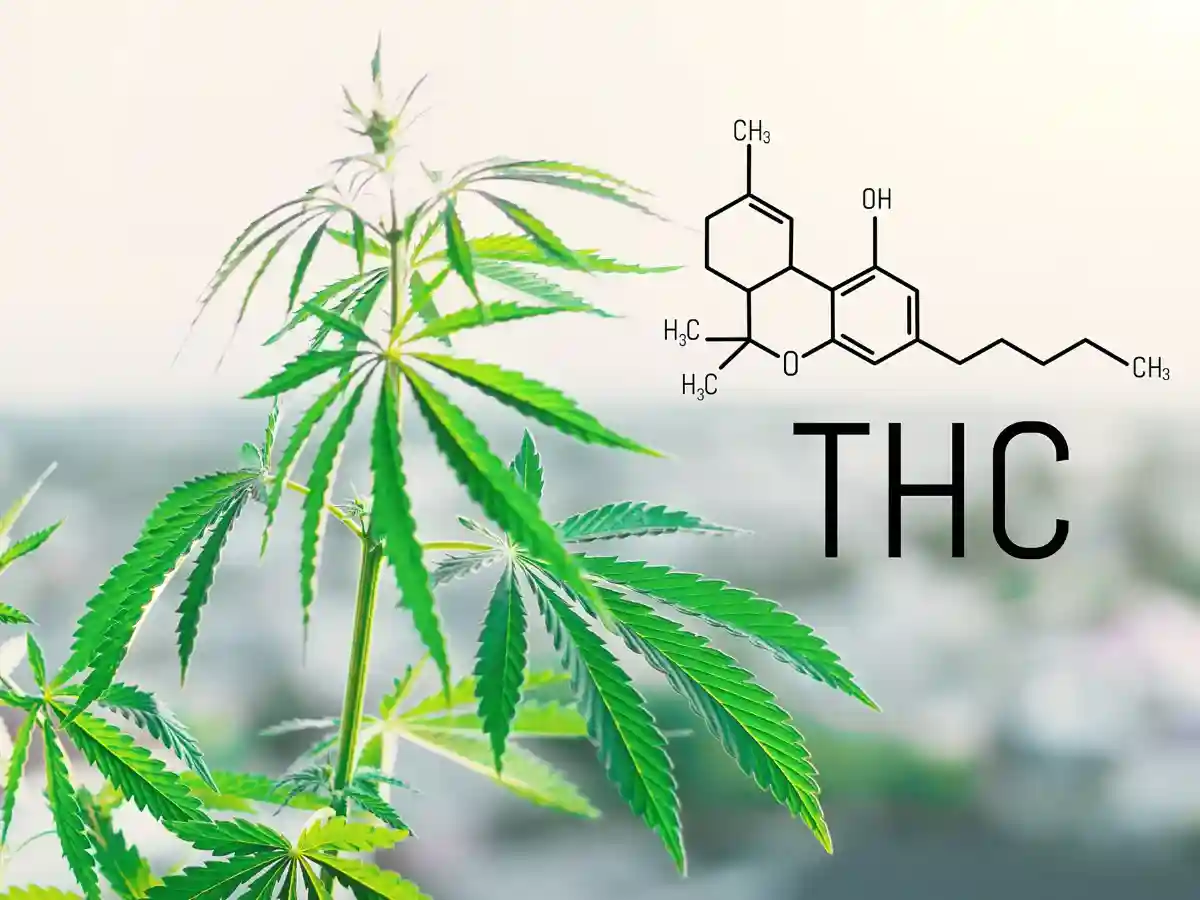
What is Delta-9 THC? Benefits, Effects, & More
What is it about cannabis that can send even the most experienced users into the stratosphere? There is no cannabinoid that’s better known for psychoactive effects than delta-9 THC, but there’s more to this clever little compound than meets the eye. But what is delta-9 THC, exactly, and how does it work? How does it differ from other THC-based cannabinoids? We’ll explore the answers to these questions and more as we break down everything you need to know about cannabis’ star ingredient.
What is Delta-9 THC?

Delta-9-tetrahydrocannabinol, or delta-9 THC, is the primary psychoactive component of cannabis. It’s one of 113 cannabinoids found in cannabis plants.
Delta-9 THC is typically known simply as “THC,” as it’s by far the most psychoactive cannabinoid found in marijuana. Anytime you see a discussion of THC, it’s likely about good old-fashioned delta-9. But how is it that a single cannabinoid can create such powerful, nuanced effects?
Delta-9 THC works by binding to CB1 and CB2 cannabinoid receptors, which are part of your body’s endocannabinoid system (ECS). Your ECS is a complex network that extends throughout your central nervous system, immune system, organs, and more. When molecules with the right structure to bind with them enter your body, receptors create bodily changes – hormone fluctuations, electrical signals, etc. – to match.
The receptors that delta-9 THC binds to the most, CB1 receptors, are primarily found in the central nervous system. THC works its magic through this process of binding to CB1 receptors, impacting appetite, pain, and mood, among other things.
How much THC is in delta-9?
It’s not really accurate to think of delta-9 vs. THC in terms of quantity, but instead as variations of THC. In this case, delta-9 is the “original model,” so to speak. Delta-9 and all other forms of THC have a chain of carbon atoms. Delta-9 has a double bond on the ninth carbon in its structure.
Other variations have this double bond at different points; delta-8 has it at the eighth carbon, while delta-11 THC has it at the eleventh, and so on. The double bond is thought to create the intoxicating effects that lead to a classic cannabis “high.”
Delta-8 vs. Delta-9 THC
Since delta-8 THC has its double bond at the eighth carbon in its chain, it binds to receptors in your endocannabinoid system slightly differently than delta-9 THC. Overall, it’s much less potent than delta-9 THC; delta-8 produces less intense and fewer psychoactive effects.
While it may not be as powerful, delta-8 THC is federally legal. That’s because all forms of THC are not actually illegal; only delta-9 THC is listed as a Schedule I drug at the federal level in the U.S.
Delta-8 acts as a sort of legal loophole that allows individuals to experience the effects of THC without breaking the law (though some states and areas may introduce laws that limit or prohibit the use of delta-8).
What Are the Effects of Delta-9 THC?

We can thank delta-9 for the effects we associate with a typical marijuana “high.” Common delta-9 THC effects can vary from person to person but often include:
- Euphoria
- Relaxation
- Heightened sensory perception (i.e., colors look brighter, foods taste better, etc.)
- Increased appetite
- Laughter or giggliness
- Altered perception of time
When ingested via inhalation, delta-9 THC can begin to take effect within minutes and should hit its peak after about an hour or two.
However, when consumed orally (via an edible, tincture, etc.), THC usually takes around 30-60 minutes to kick in. Effects should peak after several hours, dissipating until they eventually resolve after as many as eight to 12 hours.
Is delta-9 THC safe?
When taken in appropriate doses and as instructed by your doctor (when applicable), delta-9 THC is generally safe to use. But that doesn’t mean there are no risks associated with it or that it’s safe for everyone. Fortunately, there is no known toxic dose of THC; treatment for overdoses focuses on addressing unpleasant symptoms, not taking life-saving measures.
In the long term, the largest known risk associated with THC use is cannabinoid-induced hyperemesis syndrome or CHS. This condition can cause cyclical vomiting and nausea that get worse over time with continued THC use.
Likewise, many studies have tied chronic THC use to an increased risk for some psychiatric disorders, including depression, anxiety, and schizophrenia.
That’s why it’s key to be transparent with your healthcare provider about your THC use, especially if you already live with one or more health conditions.
Common Delta-9 THC Side Effects
There are some side effects of delta-9 THC to be aware of, especially if you’re new to using it. Common examples include:
- Drowsiness
- Confusion
- Headache
- Dry mouth
- Hypotension (low blood pressure)
- In extreme cases, hallucinations and paranoia may occur
These side effects should resolve on their own after a few hours.
Potential Benefits of Delta-9 THC

While research on the health and personal benefits of delta-9 THC is still evolving, there are some major perks we can pinpoint:
- Pain Relief – Some evidence suggests that delta-9 THC can help with fibromyalgia and chronic neuropathic pain. Plenty of anecdotal evidence tells us that regular THC use may help some people manage chronic inflammation and pain throughout the body.
- Appetite Stimulation – Delta-9 THC is well known for its ability to cause a surge in hunger cues, a phenomenon commonly known as “the munchies.” Some synthetic forms of THC, including nabilone and dronabinol, are even FDA-approved for appetite stimulation.
- Mood Improvement – The jury is still out on whether THC can effectively help treat things like anxiety or depression. Still, many THC fans appreciate its ability to help them relax, unwind, and feel happier.
As is true for anything you put in your body, the way you experience THC may differ from others. Certain lifestyle choices, biological differences, and taking other medications can all come into play.
That’s why it’s always a good idea to check in with your doctor before you start using THC (or if you already do). It’s better to be informed about how your THC use might affect your health so that you can safely use your favorite products.
Is Delta-9 THC Legal?
Delta-9 THC is still considered a Controlled Substance, which means it is illegal at the federal level. However, many states have passed laws that allow for either medical or recreational (or both) THC use. As of 2024, 38 out of 50 US states allow cannabis for medical use, and 24 allow it for recreational use.
Laws around delta-9 THC are constantly changing. In 2024, the Drug Enforcement Administration (DEA) initiated a review that may lead to the movement of cannabis from the Schedule I list of the Controlled Substances Act to the less-restrictive Schedule III list.
Overall, though, the best way to know what restrictions apply to you is to check your state’s current policies.
How long does delta-9 THC stay in your system?
Delta-9 THC can stay in your system for a few days, a few weeks, or even a month or two. How long delta-9 THC sticks around (and potentially shows up on a drug test) depends on many factors, including:
- Dosage and frequency of use
- The amount of THC in the products you use
- How you consume THC
- Your metabolism
- Your gender, body mass index (BMI), and overall health
- Genetics
- Hydration levels
Does delta-9 THC show up on a drug test?
Delta-9 THC will certainly show up on a drug test – it’s the kind of THC that most tests screen for. But whether delta-9 THC shows up on a drug test at any given moment largely depends on the kind of test used.
Hair drug tests can detect it for up to 90 days from the day of use. Urine tests can detect THC for up to 30 days after use, while saliva tests and blood tests can detect it for up to 24 or 12 hours, respectively.
But just because a test can detect THC doesn’t mean it will. Various factors can affect how long THC sticks around in high enough quantities to be detectable. As a result, the average detection times for each drug test are as follows:
- Urine: three to seven days
- Blood: three hours to two days
- Saliva: one to three days
- Hair: 30 to 90 days
Where to Buy Delta-9 THC Products

Cannabis products, including those with delta-9 THC, are not regulated by the Food and Drug Administration – they’re treated the same way supplements are. That means that it’s up to you as a consumer to be smart about where you shop and what you buy.
Not all delta-9 THC products are created equal. When it’s time to stock up on delta-9 products, you deserve to have access to options from trustworthy manufacturers.
You can count on The Green Dragon CBD for the hottest and highest-quality delta-9 THC products. Whether you’re on the market for a delta-9 THC gummy, smokeable, or something else entirely, we’ve got you covered.
Our team is always here to help you make informed choices about your cannabis purchases. Feel free to contact us for a free consultation to learn more about the right delta-9 products for you!










